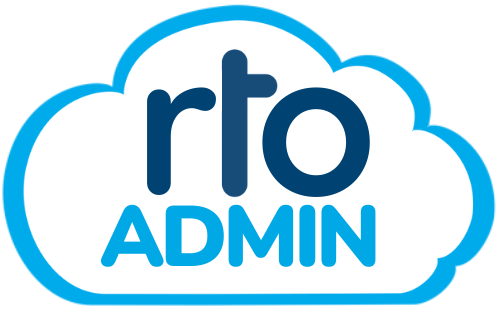Are you struggling to understand the difference between accredited and non-accredited training programs? This is a common dilemma faced by individuals today when choosing educational paths. With the evolving job market, possessing the right skills and knowledge can enhance your employability and career trajectory.
In an era where skills and expertise are highly valued, training programs offer an effective pathway to acquiring these assets. However, not all training programs hold the same value or guarantee the same outcomes. Understanding the concept of accreditation is crucial when selecting a training program. This comprehensive guide aims to elucidate the vital distinctions between accredited and non-accredited training, directing you towards informed decisions.
What Are Accredited Training Courses?
Accredited training courses are those officially recognized and sanctioned by an external governing body or a professional association. They are crafted and developed by domain experts to meet stringent quality standards, ensuring that they impart the requisite knowledge and skills pertinent to a specific profession or industry. Organisations providing these courses must undergo a rigorous registration process to maintain the program’s integrity, thereby assuring employers and stakeholders of the competency and knowledge of the candidates.
In Australia, the Australian Industry and Skills Committee is responsible for developing and managing these training courses, ensuring they are up-to-date in quality and relevance. Meanwhile, the Australian Skills Quality Authority (ASQA) regulates the training organizations that deliver these accredited programs, branded as “Nationally Recognised courses.” These programs enjoy recognition across all Registered Training Organisations (RTOs), universities, and employers nationwide.
Characteristics of Accredited Training
- Recognition: Accredited training is acknowledged nationally and often internationally, facilitating career mobility.
- Quality Assurance: They are subject to rigorous standards set by relevant authorities, which regularly audit these programs to ensure consistency in delivery and content.
- Industry Requirements: Many professions require formal accreditation to practice, making accredited courses necessary for entering certain fields.
What Are Non-Accredited Training Courses?
Non-accredited training courses are formulated and delivered independently by various organizations without undergoing any formal regulatory evaluation by an authoritative body. While these courses do provide essential skills and knowledge, they are often perceived as less significant by employers compared to accredited programs.
There is, however, a substantial demand for continuous learning, propelling employees and prospective candidates to undertake non-accredited courses from online platforms like Udemy, Coursera, LinkedIn, and Google Courses.
Characteristics of Non-Accredited Training
- Flexibility: These programs often offer more flexibility in terms of content and delivery, accommodating niche areas of interest or quick upskilling needs.
- Affordability: Generally cheaper than accredited programs, making them accessible to a broader audience.
- Supplementary Learning: They can be utilized to supplement formal education, providing additional skills or knowledge in specific areas not covered in accredited curricula.
Why Choose Accredited Courses?
Pursuing accredited courses can be a strategic move, particularly if your career path necessitates meeting minimum standards to enter a particular industry. In Australia, sectors like trade (electricians, air-conditioners, construction), mining, nursing, dentistry, and security mandate formal certifications and sometimes licensing to ensure competent practice.
Governmental bodies regulate the institutions offering accredited courses to guarantee that employers can confidently hire their graduates, fostering industry consistency and public trust. Despite their higher costs, accredited courses may attract government subsidies, with various funding options available through both federal and state initiatives.
Advantages of Accredited Programs
- Employer Confidence: Employers place greater trust in candidates with accredited qualifications, associating them with reliability and proficiency.
- Funding Opportunities: Potential eligibility for government funding reduces financial barriers for students.
- Benchmark for Entry: Serve as an industry benchmark, often being a prerequisite for certain job roles.
Why Consider Non-Accredited Courses?
While non-accredited courses might not hold formal recognition, they offer substantial benefits, particularly in enhancing knowledge and skill sets. These programs attract employers interested in continuous professional development and can complement an individual’s formal education and training, providing competencies in areas otherwise overlooked.
Entrepreneurs, for example, can significantly benefit from non-accredited courses about small business management, enabling them to gain critical insights needed for successful business operations. Skills acquired through non-accredited routes can provide practical advantages and innovative perspectives, emphasizing readiness and versatility.
Benefits of Non-Accredited Training
- Professional Growth: Demonstrates a commitment to ongoing learning, which can appeal to potential employers.
- Practical Application: Often focused on practical skills that can be directly applied in work or business settings.
- Cost-Effective Improvement: A cost-efficient way to acquire knowledge and new skills without extensive financial investment.
Specifics of Accredited Vocational Courses in Australia
In certain industries, securing employment hinges on possessing requisite qualifications often offered as certificates or diploma-level courses. For instance, in the field of early childhood education, the CHC30121 Certificate in Early Childhood Education and Care is essential for employment as an early childhood educator. Similarly, the CHC33015 Certificate III in Individual Support serves as an entry-level qualification for support workers in aged care.
Only Registered Training Organisations (RTOs) are authorized to offer these courses. Prospective students can find detailed information about accredited courses and the RTOs offering them on platforms like training.gov.au. In certain instances, financial aid might be available, as illustrated by the Queensland government’s Certificate 3 Guarantee and Higher Level Skills funding program for eligible students.
Key Attributes of Vocational Courses
- Industry Relevance: Align closely with industry requirements, ensuring the curriculum is up-to-date and meets professional standards.
- Subsidised Options: Eligible applicants may benefit from government-subsidised courses, easing the financial burden while promoting access to necessary training.
Key Differences Between Accredited and Non-Accredited Qualifications
Dissecting the crucial differences between accredited and non-accredited qualifications can illuminate which path aligns best with your professional goals:
| Feature | Accredited Training | Non-Accredited Training |
|---|---|---|
| Recognition | Nationally recognized, often holds international value | Generally unregulated, varies in recognition |
| Quality Assurance | Regulated by governing bodies like ASQA, ensuring consistency | Quality can vary, depends on the providing organization |
| Funding Availability | Eligible for government subsidies | Typically not funded, but more cost-effective |
| Employment Advantage | Required for professional practice in certain industries | Complementary and supplementary, not a primary requisite |
Why Opt for RTO Admin for Accredited Vocational Courses?
Considerations for Choosing RTO Admin
- Proven Track Record: Extensive experience and a successful history of empowering numerous students.
- Supportive Employment Network: Strong focus on helping graduates transition into the workforce seamlessly.
- National Recognition: Courses that carry national recognition and meet ASQA’s rigorous standards.
If you’re considering advancing your career through an accredited vocational course, RTO Admin offers a range of options designed to align with both industry demands and personal aspirations. With courses such as the CHC30121 Certificate III in Early Childhood Education and Care and the CHC33015 Certificate III in Individual Support, RTO Admin provides the guidance and resources you need to maximise your career potential.
Ultimately, the choice between accredited and non-accredited courses hinges on your career objectives, industry standards, and personal circumstances. By thoroughly understanding the attributes and implications of each, you can make informed decisions that align with your ambitions and professional goals.



